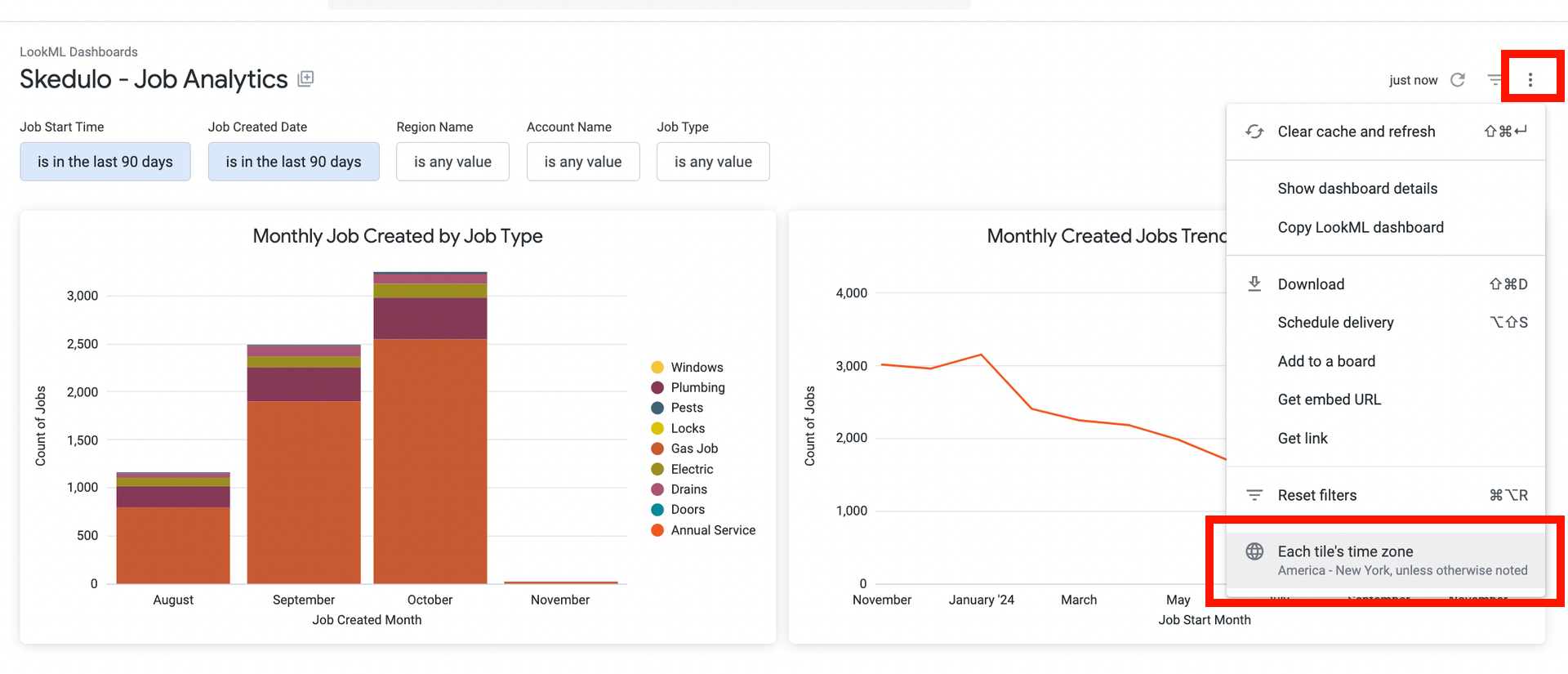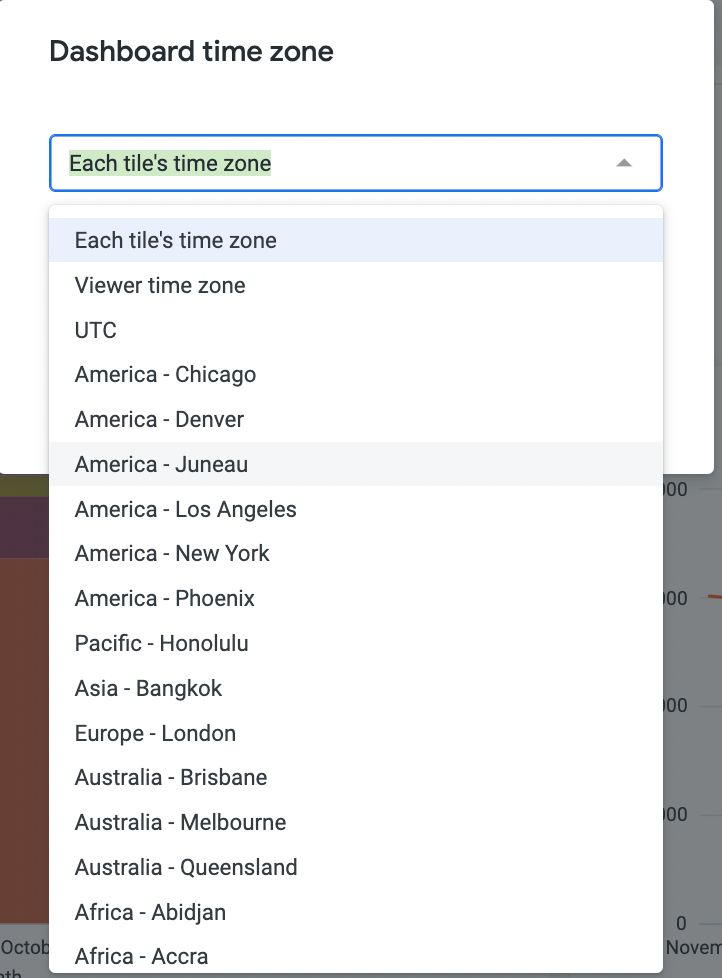Introduction to Skedulo analytics
Overview
Skedulo Analytics helps organizations to transform data into actionable insights, visually analyze performance, build dashboards, and perform ad-hoc analysis instantly.
License options
There are two types of user licenses: Viewers and Designers.
- Viewers can view and filter widgets (graphically presented metrics or reports) in dashboards that are shared with them.
- Designers can do the same as well as copy, edit, create, and share dashboards.
Please contact your Skedulo Customer Success Manager (CSM) regarding access and pricing.
New analytics users
When a user clicks into the Analytics page for the first time they will not be able to do anything or see any dashboards until they are added to appropriate security groups and given the correct license.
We are working on automating this process, however, while it is still manual we ask that during the onboarding phase you supply your CSM with a list of user email addresses that you nominate to consume the analytics licenses you have purchased, including any designated designers.
Dashboard sharing
Skedulo maintains the Feature Dashboards folder, which includes dashboards that are shared with all customers.
New dashboards can be shared with your default user group, which includes all of your users and your Skedulo CSM, or with specific users in that group.
Feature dashboards are periodically updated with new widgets and republished. This overwrites previous versions of the dashboard.
Skedulo does not recommend editing these dashboards directly, as changes will be overwritten when they are republished by Skedulo. Instead, we recommend that designers duplicate their required dashboards, which they will then own and can share and republish as required.
Note that duplicate versions of dashboards are a snapshot of a feature dashboard at the time of duplication, and it will no longer be updated by Skedulo.
Designers can also drag and drop widgets from a feature dashboard or any other dashboard onto a dashboard. This allows you to quickly build custom dashboards without having to create widgets from scratch.
Skedulo feature dashboards
The Skedulo Feature Dashboards folder includes the Skedulo Widget Library dashboard, which contains all widgets built to date. This does not include their many possible variations in terms of filters and axis scaling.
These widgets are useful in their current form but can also be copied by designers to create customized and augmented versions.
Additional feature dashboards may include use case-specific modules to group widgets commonly used in related tasks or by a certain audience.
All widgets featured in these additional feature dashboards are taken directly from the Skedulo Widget Library, and in some cases, they are filtered or broken up in various ways that might suit the use case.
Some widgets also contain specific information about how they are calculated or how they might be used. Click the information icon to display the widget details.
New feature dashboards are added periodically and existing ones enhanced in accordance with our release cycle.
This overwrites previous versions of the dashboard.
Skedulo recommends that you do not directly edit Skedulo feature dashboards. Instead, drag and drop widgets from these dashboards onto your own dashboard or duplicate the entire dashboard.
Feature dashboard releases will generally coincide with Skedulo Web App releases, and relevant updates are detailed in those release notes.
See the Skedulo Web App Release Notes.
Support and training
All analytics and support requests can be directed to your Skedulo CSM.
Data source
Your organization’s analytics data model is a partial replica of your Skedulo application database and periodically connects to that database to incorporate updates.
Sovereignty
Your Analytics data model is located alongside your Skedulo Application database in Skedulo’s secure hosting infrastructure.
Data update frequency
Analytics is intended for reporting purposes and not designed for exporting data in real time.
The data processing pipeline is scheduled to run every 30 minutes and as such, there can be a delay of at least 45 minutes between the time that a user makes a change to data in Skedulo and the time that it is available in the analytics tool.
Time zones
All datetime data are stored in UTC (GMT) in our database by default. You can change the timezone of a dashboard to suit your needs.
To change the timezone for a dashboard, do the following steps:
- Click the vertical ellipsis icon on the dashboard.
- Click Each tile’s time zone.

- Select the time zone for your dashboard.

Feedback
Was this page helpful?